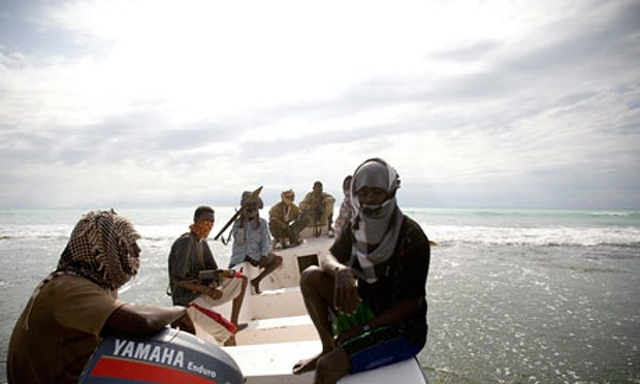The UN Office on Drugs and Crime (UNODC), together with the Oceans Beyond Piracy (OBP) organisation, conducted an informal survey of 66 Somali inmates accused of piracy in Hargeisa prison in Somaliland, Bosasso Prison in Puntland and Montagne Posee Prison in the Seychelles.
The survey was aimed at understanding the prisoner attitudes about piracy and finding effective deterrents. It was focused on finding issues of relevance to UNODC and counter-piracy activities.
Conducted in the prisons by UNODC personnel, the survey clearly indicates that the economic strife was their primary reason for engaging in maritime crimes.
After questioned on the subjects, the prisoners have presented various reasons to join pirates’ groups. The common explanation for their actions was the poverty in their homeland.

Image: Veronique De Viguerie
The imprisoned men were also questioned if they knew anyone that had left piracy, and what their plans were post-prison. They were asked to tell their opinion on the most effective deterrent to piracy, and what might stop piracy long-term.
In contrary of those who said that they have been motivated to go at sea because of poverty, other prisoners said that they actually have left piracy on the high seas once they had enough money to retire.
Many prisoners also pointed to illegal fishing as a reason for piracy and suggested that if it persisted then piracy may continue, because it is the only option for making money for many Somalis.
The survey found that the International naval presence was frequently reported as a concern or a significant contribution to deterring pirates. Other significant reason for the prisoners to stop their maritime crimes were private armed guards aboard vessels. The specialist concluded that a significant draw-down in naval forces may reduce a deterrent factor potentially contributing to the reduction in piracy.
Prisoners who knew pirates who quit piracy indicated that family and community pressures were very important consideration for people leaving piracy, and counter-piracy messaging encouraging this may be valuable.
The prison was described as the worst place to be in the world by some detainees, but others commented that the fear of imprisonment was a huge deterrent.
The peak of Somalia’s piracy was reached in 2011, but records show that there is a significant decrease of piracy in the region during the past three years.
Last year, Oceans Beyond Piracy reported only 18 pirate attacks and none of them actually hijacked a commercial vessel.
Additional regional security measures that have been taken and the heightened naval patrol are the main contributor for the decline of piracy in the regions near Somalia.
At the same time, records for 2015 shows that Southeast Asia is registering its highest level of attacks over the last five years.